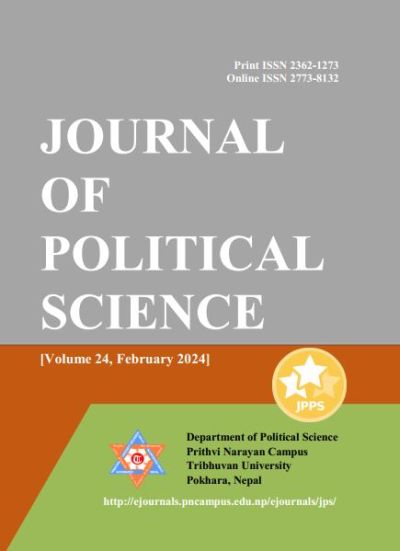Exploring Fiscal Federalism and the Structure of Public Spending in Nigeria
DOI:
https://doi.org/10.3126/jps.v24i1.62856Keywords:
Fiscal federalism, fiscal instruments, public revenue, public spendingAbstract
Globally, there has been a noticeable shift towards fiscal decentralization during the last few decades. As a result, subnational levels of government now have more latitude for revenue generation and spending decisions. Nations all around the world are recognizing the benefits of fiscal decentralization. Fiscal federalism, as a component of fiscal decentralization, deals with the public sector's vertical organization. It examines the functions of the various governmental tiers and their interactions with one another through various fiscal mechanisms. The study aims to investigate the impact of Nigeria's fiscal federalism on public spending and the welfare of its citizens. The Wiseman-Peacock theory was adopted as the theoretical framework. The study was based on a documentary research design. Content analysis was used as a method for analyzing data. The derived findings revealed that Nigeria’s revenue-to-GDP ratio is among the lowest in the world. It also established that revenue shortages have created imbalances in government expenditure, i.e., recurrent above capital expenditure. The study recommends that addressing loopholes in the current tax legal framework, allocating spending more efficiently, and strengthening institutions are approaches to be applied to put Nigeria on a sustainable fiscal path.
Downloads
Downloads
Published
How to Cite
Issue
Section
License

This work is licensed under a Creative Commons Attribution-ShareAlike 4.0 International License.




